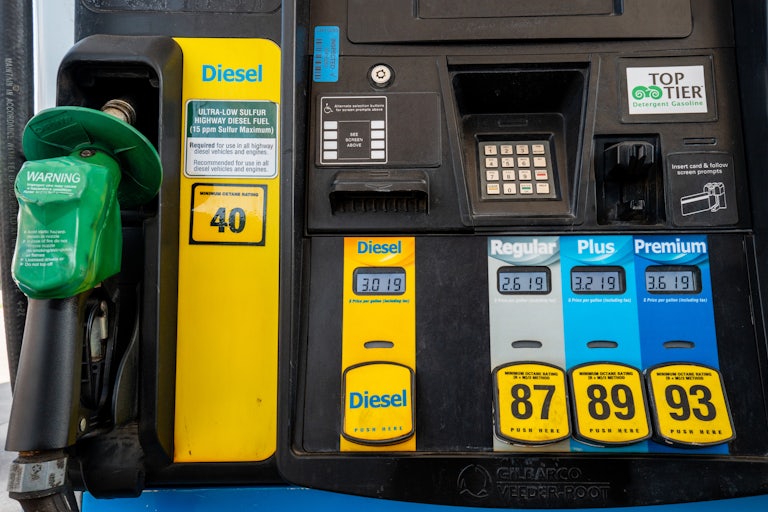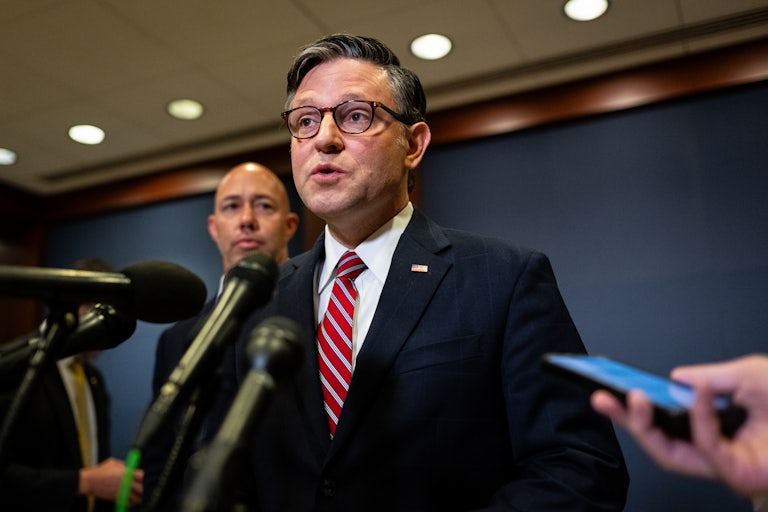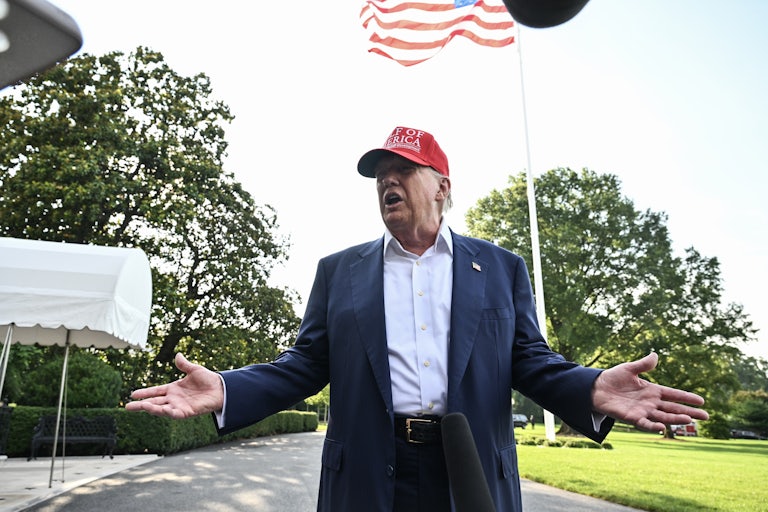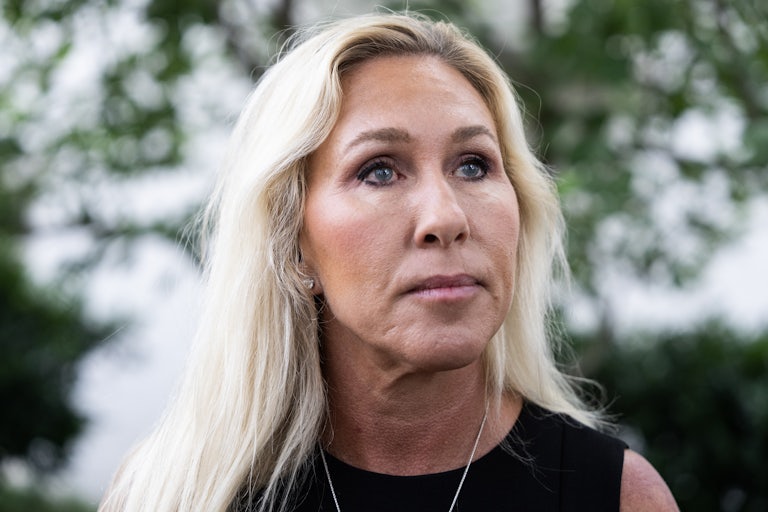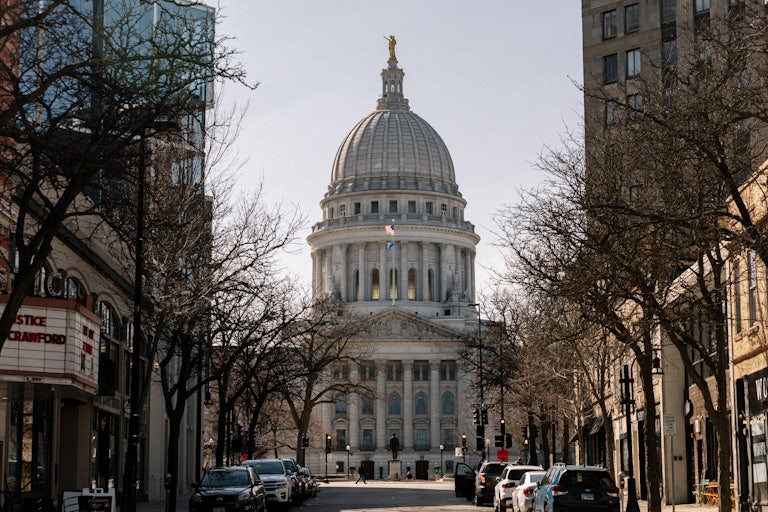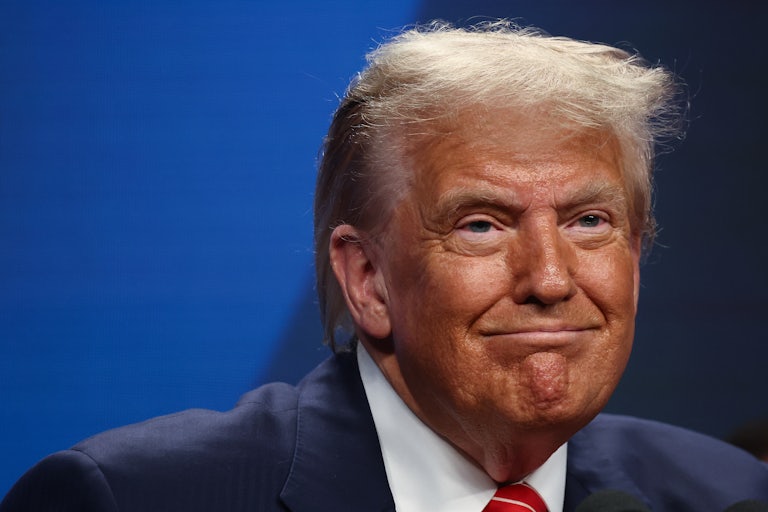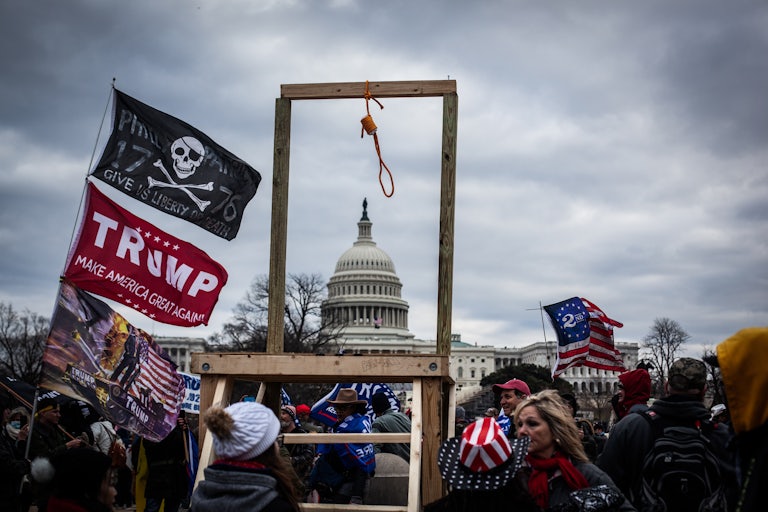Trump’s Newest Trade Deal Is a Total Mess
Donald Trump made no sense while bragging about a trade deal with Vietnam.
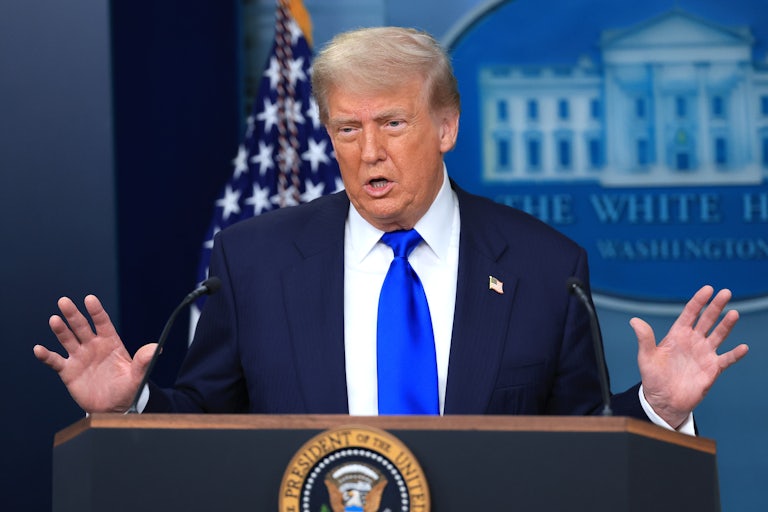
Donald Trump’s great new deal with Vietnam may actually be terrible for America.
The president announced the trade arrangement Wednesday morning, writing on Truth Social that “Vietnam will pay the United States a 20 percent Tariff on any and all goods sent into our Territory,” as well as a 40 percent tariff on transshipping. In exchange, the United States will get “TOTAL ACCESS to their Markets for Trade.”
“In other words, they will ‘OPEN THEIR MARKET TO THE UNITED STATES,’ meaning that, we will be able to sell our product into Vietnam at ZERO Tariff,” Trump wrote. “It is my opinion that the SUV or, as it is sometimes referred to, Large Engine Vehicle, which does so well in the United States, will be a wonderful addition to the various product lines within Vietnam.”
But analysts reading between the lines of the deal didn’t see the good news.
“Vietnam doesn’t pay tariffs on goods we import!” posted American Immigration Council senior fellow Aaron Reichlin-Melnick, noting that Trump’s explanation is not how tariffs work.
“This deal means American businesses will pay a 20 percent tax on the $140 billion we import from Vietnam, while Vietnamese businesses will pay no taxes on the $13 billion we export,” he wrote.
The lack of taxes could incentivize Vietnamese businesses to buy more American products. But Reichlin-Melnick argued in a separate post that net taxes on American businesses caused by a 20 percent tariff on $140 billion in exports would amount to $28 billion, “which is more than twice the total value of all the goods we export to Vietnam.”
“There’s no way that’s a net positive for American businesses,” he said.
Some of America’s largest and most successful companies, such as Apple and Nike, have manufacturing facilities in Vietnam and could face higher import costs due to Trump’s negotiating—a spike that will undoubtedly be felt by the consumer.
Trump’s 90-day pause on his reciprocal tariff policy is scheduled to expire next week. So far, the administration has only struck revised deals with China, the United Kingdom, and now Vietnam.
Last week, the White House said that the deadline for countries to strike trade deals with the U.S. may be extended past July 9, with press secretary Karoline Leavitt describing the hard stop as “not critical.”
In the end, it will be the U.S. that pays the price when the Trump administration runs out of time on its “90 deals in 90 days” promise. Earlier this week, Federal Reserve Chair Jerome Powell said that the central bank likely would have lowered its key interest rate if Trump hadn’t announced his tariff plan. Companies have already decided to increase product prices this year in reaction to hampered global supply chains.
